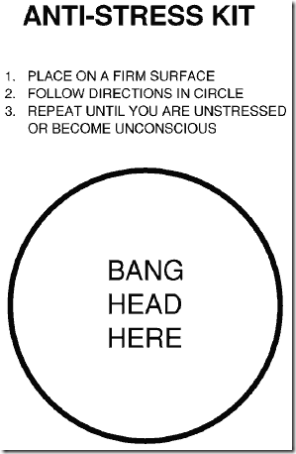Stress & Health
Stress ► Used to describe the physical, emotional, cognitive and behavioral responses to events that are appraised as threatening or challeging
Stressors
Stressors ► Stress-causing events
i) Distress
►The effect of unpleasant and undesirable stressors.
ii) Eustress
► The effect of positive events or the optimal amount of stress that people need to promote health and well-being.
Example of stressors :-
- Enviromental/Physical factors:
- Catastrophe
- an unpredictable large scale event that create a tremendous need to adapt and adjust.
- fire, floods, earthquake, etc.
- Major life changes
- ordinary life experiences, not necessarily negative events.
- marriage, going to college, etc.
- Hassles
- the daily annoyances of everyday life that leads to the causing of stress.
- picking what to eat for lunch, etc.
- Psychological factors:-
- Pressure
- produced by urgent demands or expectations for a person's behavior that come from outside source
- a student have to submit assignments on time.
- Uncontrollability
- when a person is prohibited from having any control over a particular events or situation.
- the less control the person has, the greater degree of stress.
- Frustration
- produced by the blocking of a desired goal or fulfillment of a perceived need.
- ways to overcome frustration;
- persistence ► continuation of effort.
- aggression ► actions meant to harm.
- escape ► leave the presence of stressors.
Conflict
1. Approach-approach conflict
- conflict occurs when a person must choose between 2 goals.
2. Avoidance-avoidance conflict
- conflict occurs when a person must choose between 2 desirable goals.
3. Approach-avoidance conflict
- conflict occurs when a person must choose a goal that has both positive and negative impact.
4. Multiple approach-avoidance conflict
- conflict in which the person must decide between more than 2 goals, with each goal possessing both positive and negative aspects.
- also known as double approach-avoidance conflict.
Coping with stress ► action that people can take to master, tolerate, reduce or minimize the effect of stressors.
1. Problem-focused coping
- eliminate the source of the stress or reduce the impact through direct action.
2. Emotion-focused coping
- change the impact of a stressor by changing the emotional reaction towards the stressor.
3. Meditation
- mental series of exercises meant to refocus attention and achieve translike state of consciousness.
4. Culture/Religion
- on individual culture/religion beliefs can affect the appraisal of events as more/less stressful, the coping strategies adapted and support systems that can offer assistance.












0 comments:
Post a Comment